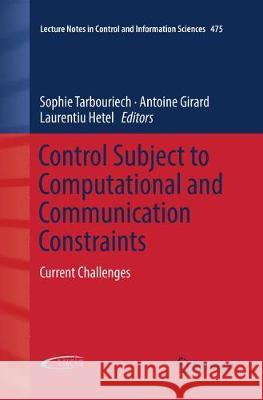Control Subject to Computational and Communication Constraints: Current Challenges » książka
topmenu
Control Subject to Computational and Communication Constraints: Current Challenges
ISBN-13: 9783030087012 / Angielski / Miękka / 2018 / 376 str.
Kategorie:
Kategorie BISAC:
Wydawca:
Springer
Seria wydawnicza:
Język:
Angielski
ISBN-13:
9783030087012
Rok wydania:
2018
Dostępne języki:
Numer serii:
000034709
Ilość stron:
376
Oprawa:
Miękka











